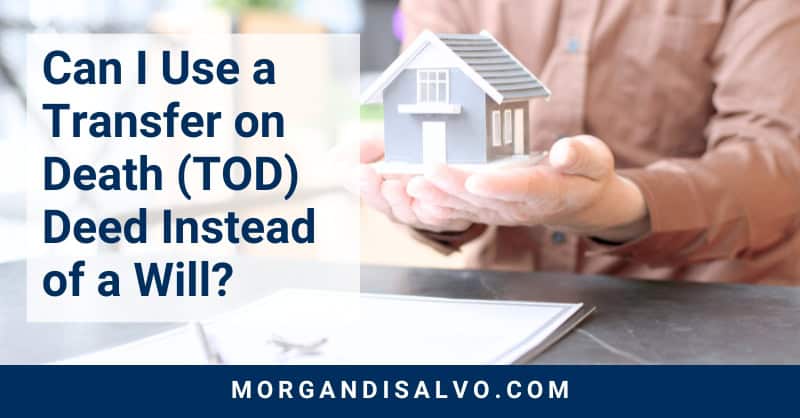Question: I was considering setting up a transfer on death deed instead of making a Will. I have two children, each of whom has one son. I wanted to put each child’s name on the transfer on death deed. If I put both of my children on a transfer on death deed, but one predeceases me or passes away with me simultaneously, will his share of the house and land go to his child like I want it to, or will only the remaining living person on the deed get the entire thing?
I know with or without a Will in Georgia, my grandson would get his father’s share; but in this situation where both my sons are on a transfer on death deed, would a son still get his father’s share?
Loraine’s Answer: Please DO NOT use a transfer on death (TOD) deed instead of a Will. A TOD deed only applies to one asset: the parcel of real estate that it describes. A Will applies to any assets that you own that don’t have a beneficiary designation or a right of survivorship on them.
Using a well-drafted Will (or a Will and a Revocable Living Trust), instead of relying on beneficiary designations (including TOD deeds, Payable on Death designations, and Transfer on Death registrations) can make your life easier because you don’t have to constantly monitor a slew of beneficiary designations and ensure that you keep them up to date as your family changes. A Will or Revocable Living Trust can also allow you to choose what you want to have happen if a desired beneficiary dies before you, while a TOD deed, POD designation, or TOD registration may not produce the desired result in that circumstance.
A TOD deed that names two beneficiaries will result in all the property going to the one surviving beneficiary if one of the two dies before you do. So, the TOD deed would not cause a deceased child’s share to benefit that child’s own children. You would need to do a new TOD deed if a child died before you, and you might not be able to do so if you have become incapacitated or if your own death occurs very shortly after the death of your child.
In addition, a TOD deed may not even result in the desired transfer: the beneficiaries under a TOD deed must file an affidavit that includes a death certificate for you in the real estate records within no more than 9 months after your death. If they fail to execute and file the correct affidavit in this very short period of time, the TOD deed will fail, and the property will become part of your probate estate. If you don’t have a Will, the probate estate will pass by intestacy and your heirs will have more hoops to jump through to deal with your estate than they would have had to you if you had a Will.
With a Will or a Revocable Trust, on the other hand, you can provide for a deceased child’s share to benefit that child’s own children. The children don’t have to rush to get an affidavit filed. The Will or Revocable Trust can also apply to more than just one asset, so you can spend less time worrying about making sure all your beneficiary designations are up to date or whether you’ve missed anything.
Please do yourself and your family a favor and get a consultation with an experienced estate planning attorney. The attorney should be able to help you make sure that your assets will pass the way you want them to, with a plan that is comfortable for you.
Key Estate Planning Takeaways: A transfer on death (TOD) deed does not substitute for a Will. A TOD deed only applies to the parcel of real estate that it describes. Using a well-drafted Will (or a Will and a Revocable Living Trust) will more adequately cover any assets that aren’t controlled by beneficiary designations, such as TOD deeds or a right of survivorship.
This “Q&A with Loraine” blog series is inspired by answers from Morgan + DiSalvo Partner Loraine DiSalvo to actual user questions posted by individuals on www.avvo.com. This blog is a more in-depth response than can be given on their site under their character limits for answers. To view the original question and Loraine’s original response, click here.




